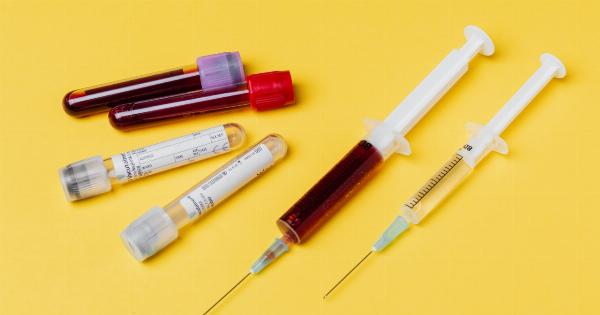When your doctor orders a blood test, it can provide valuable insights into your overall health and help diagnose certain medical conditions.
However, understanding the meaning behind your blood test results can be overwhelming, especially with all the numbers and abbreviations. It is essential to have a conversation with your doctor to fully comprehend the implications of your blood test results. Here are some questions to ask your doctor to help you better understand what your blood test results mean:.
1. What specific blood tests did you order?
Start by asking your doctor about the specific blood tests they conducted. Blood tests are not one-size-fits-all, and there are numerous types that provide information about different aspects of your health.
Understanding which tests were performed will help you focus your questions and gain clarity about the specific areas of your health being assessed.
2. What is the purpose of each blood test?
Each blood test serves a distinct purpose, and your doctor should be able to explain what they were looking for with each test.
They may be evaluating specific organs, checking for infections, assessing nutritional deficiencies, or monitoring the effects of medications. Understanding the purpose of each test will help you grasp the significance of the results.
3. What are the normal ranges for each test?
Blood test results typically come with reference ranges, also known as normal ranges or reference intervals. These ranges help determine whether your values fall within the expected parameters or if they are outside the norm.
Ask your doctor to explain the normal ranges for each test and whether your results fall within those ranges.
4. Are there any abnormalities in my results?
If your blood test results show values that are outside the normal range, it may indicate an abnormality or an underlying medical condition. Ask your doctor if there are any abnormalities in your blood test results and what they might indicate.
They can provide guidance on further testing or recommend treatment options if necessary.
5. What could be the potential causes for abnormal results?
If your blood test results are abnormal, it is crucial to understand the potential underlying causes. It could be due to various factors such as infections, inflammation, genetic predispositions, medication side effects, or lifestyle choices.
Discussing the potential causes with your doctor will help you understand why your results deviate from the normal range.
6. Are there any additional tests needed to confirm a diagnosis?
In some cases, abnormal blood test results may require further testing to confirm a diagnosis. Ask your doctor if there are any additional tests needed to gain a clearer understanding of your condition.
They can explain the purpose of these tests and how they will contribute to your overall diagnosis.
7. What lifestyle changes can I make to improve my blood test results?
Blood test results can sometimes point to areas where lifestyle changes can have a significant impact on your health.
Ask your doctor about any specific lifestyle modifications, such as dietary changes, exercise routines, or stress management techniques, which could help improve your blood test results. Taking proactive steps towards a healthier lifestyle can often positively influence your test results.
8. Do my results indicate any long-term health risks?
Some blood test results may provide insights into your long-term health risks. For example, elevated cholesterol levels could indicate an increased risk of heart disease.
Discuss with your doctor whether your results suggest any long-term health risks and what steps you can take to mitigate them.
9. When should I schedule follow-up blood tests?
Depending on your specific condition, your doctor may recommend follow-up blood tests to monitor progress or assess any changes. Ask your doctor when you should schedule follow-up blood tests to track the evolution of your health.
Regular monitoring can help ensure that any potential problems are addressed promptly.
10. What other healthcare professionals should I consult based on my results?
Some blood test results may indicate the need for consultation with other healthcare professionals. For instance, abnormal thyroid function results may require you to consult an endocrinologist.
Ask your doctor if any additional specialists should be involved in managing your health based on the blood test results.
Remember, the questions listed here are just a starting point. Feel free to ask additional questions that pertain to your specific health concerns and to seek clarification whenever needed.
Good communication with your doctor is key to understanding what your blood test results mean and how they relate to your overall well-being.




























